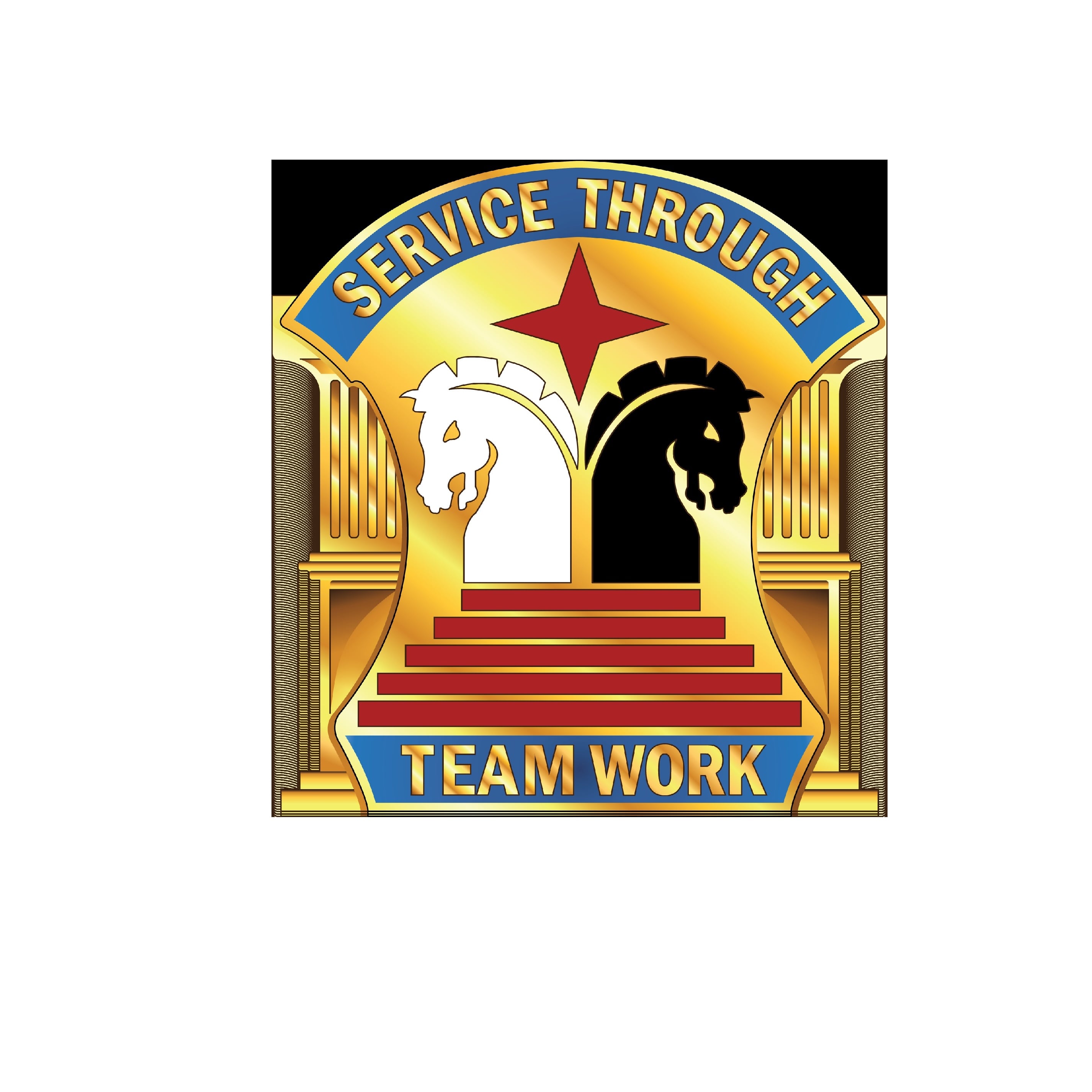goes w/lengthy qualifications box
One of the Army’s low-profile but high-impact intelligence agencies is scouting current and former officers, warrant officers and NCOs for two very special career programs.
The same organization also has non-career broadening opportunities for noncommissioned officers NCOs who would like to serve overseas as an enlisted defense attaches.
These special jobs are managed by the Army Field Support Agency, a major subordinate command of Army Intelligence and Security Command.
"Our job really is to find the right people and put them in the right place so they can work the right mission," AFSC commander Col. Eric Zimmerman said.
Based at Fort Meade, Maryland, the AFSC serves as the force provider for the Army's only career intelligence programs, as well as the Army element of the Defense Attaché Service.
The Great Skills Program, Military Intelligence Civilian Excepted Career Program and Army Attaché Program " "We have vital programs – the Great Skills Program, the Military Intelligence Civilian Excepted Career Program and the Army Attaché program. "These programs provide military and career civilian intelligence professionals with opportunities to serve in missions and locations largely unknown to the rest of the Army," Zimmerman said.
The first two programs are unique in that they are designed to provide a continuum of service that begins with the training, professional development and operational employment of officers and NCOs to sensitive, nearly always classified, operational missions in support of Army and joint forces. After completing Upon completion of their military career in the Great Skills Program, these same professionals – now at the peak of their expertise – have the option of transferring to civilian program, also known as MICECP. MICECPthe MI Civilian Excepted Career Program.
Former soldiers serving with MICECP typically have experience as human intelligence or counterintelligence professionals, or both.

Nearly all duties undertaken as part of the career programs offered by the Army Field Support Center take place away from the public eye. Here, Edgardo Ortiz, right, a Military Intelligence Civilian Excepted Career Program agent with 470th Military Intelligence Brigade, speaks with a Haitian at an open-air market after deploying to Port-au-Prince after the 2010 earthquake.
Photo Credit: CW2 Katrina Adams/Army
"We have the capability to provide a soldier with training, professional development and operationally focused assignments throughout their military career, and if they choose, to continue that pattern in the civilian career program," Zimmerman said.
Because of the classified nature of the missions to which AFSC personnel are assigned, center officials could not address questions regarding specific missions and duties, past or present, or the organizations which they support.
Particular sets of skills
While the Great Skills Program certainly needs qualified military intelligence soldiers, AFSC also is interested in accessing soldiers from other career fields who may have skill sets and unique talents needed for specialized intelligence operations, according to Sgt. Maj. Ayman Gomaa, the support center sergeant major.
"The Army will train these soldiers as needed," said the sergeant major."With a lot of troops coming back from deployment, they are asking themselves, ‘What’s next for me?' " Gomaa said. "One thing we want to highlight is that we are a 24/7 operation, and if a war is not going on, we still have a mission, and will continue to have a mission into the future (for those who join our team)," he said.
AFSC primarily is looking for Regular Army, active-component soldiers, but has recruited reservists who have unique skill sets and who agree to transition to the active component. Such moves "However, "these are very limited, and done only on a case-by-case basis," Gomaa said.
Training will be done on an as-needed basis, he said.
"We recruit talent, we don’t recruit resumés," said a Great Skill Program recruiting official who asked that his name not be used for security reasons. "We are looking for the right soldier who has the commitment to serving in these sensitive positions and who has the character to conduct these high-impact missions, and to succeed in the training environment and in the operations that we conduct worldwide. said the official.
"We will provide the competence to that soldier, whether they are an NCO, warrant officer or officer."
"We are going to get them the training they need, and we’re going to ensure they are successful out in the field."The Great Skill professional development regimen includes language training and advanced civilian education, as needed, as well as the regular professional military education courses required of all Army officers, warrant officers and NCOs.
"Depending on the mission, we will give our soldiers whatever is required to be successful," the Great Skills official said, adding that NCOs who enter the program .The same official also said NCOs who are accepted into the program, and who are so inclined, have opportunities to become warrant officers.
There are no grade ceilings for soldiers assigned to the Great Skills program, with NCOs being able to reach sergeant major, warrant officers eligible to make CW5 and commissioned officers able to become colonels. The unnamed official said the program had many long-serving members who'd reached those ranks, and the training participants receive, Gomaa said, "makes them very competitive for promotion."
"We have many colonels, CW5s and sergeants major who have spent a long time in the program, and who have come up through the ranks," said the official.
"The training we give these soldiers makes them very competitive for promotion," according to Gomaa.
Becoming an attaché
The Enlisted Attaché Program is not a career endeavor, but rather a broadening assignment that involves some training and the award of Skill Qualification Identifier 7, which is well-respected by promotion boards.
"Soldiers accepted for this program acquire a skill set not available anywhere else in the Army, and that makes them very competitive for promotion," said Master Sgt. Britt Skaggs, a personnel manager with the Attaché Management Division of AFSC, which also has requirements for warrant officers.

The logo for Army Field Support Command, which runs two career-track programs seeking soldiers with clean backgrounds and a desire to work on secret missions.
Photo Credit: Army
Skaggs said 10 staff sergeants with attache experience are on the new sergeant first class list, while four SFCs were selected for advancement to master sergeant earlier this year.
Soldiers in the ranks of sergeant through master sergeant who are selected for attaché duty will serve in the Defense Attaché Office of U.S. embassies worldwide. The DAO staff represents the Defense Department to the host-nation government and military, and assists and advises the U.S. ambassador on military matters, among other duties.and coordinates other political/military actions within the embassy’s area of accreditation.
Skaggs said the Army has a mix of accompanied and unaccompanied enlisted attaché tours that range from 12 months to three years. Before their overseas tour, soldiers will attend the Joint Military Attaché School in Washington, D.C., and, if required, language school.
Upon completion of their tours, many of these soldiers will have follow-on assignments to Army units that are regionally aligned.
HOW TO APPLY
Application requirements for the Army Field Support Center programs are rigorous and focus on officers and NCOs with an outstanding record of service who have unique skills, experience and potential, as follows:
Great Skill Program
A career military program that identifies, selects, trains, assigns and retains officers and NCOs who conduct sensitive and complex classified operations for the Army, Defense Department, joint forces and national agencies.
Applicants will undergo a rigorous mental screening, assessment and selection process. In addition, tThey must have a record of strict adherence to Army values and should exhibit excellent interpersonal skills, written and oral communication proficiency, initiative and leadership, flexibility and adaptability, critical thinking and research abilities, and have a strong personal work ethic. Specific requirements include:
- Active-component soldier, at least 25 years old, holding or can be processed for pplicants must be an active component soldier, 25 years or older, who holds, or who can be processed for, a top secret security clearance with access to sensitive compartmented information and who has passed, or is willing to take, a counterintelligence polygraph.
- MApplicants must have a minimum score of 2/2 on the Defense Language Proficiency Test, or 95 on the Defense Language Aptitude Battery.
- If married, spouse an applicant’s spouse must be a U.S. citizen or be willing to apply for citizenship.
- No Applicants should not have unsecured debt of more than $15,000.
- At least Applicants must have at least five years’ time in service.
- A, and be approved for release by their career branch.
- For enlisted, be • Enlisted soldiers must be in the rank of sergeant or higher, and be eligible to become a warrant officer (have a GT of 110 or higher and be a graduate of the Advanced Leader Course).
- For officers, • Officers must have completed a key developmental assignment for their current rank and specialty as defined in DA PAM 600-3, Commissioned Officer Professional Development and Career Management.
- For counterintelligence track applicants, hold Applicants for the counterintelligence career track should hold enlisted MOS 35L, warrant MOS 351L or commissioned officer AOC 35E and have at least four years of service in the specialty.
For additional information, access the Great Skill SIPRNet website at http://gsd.daiis.mi.army.smil.mil, or the NIPRNet website at https://inscom.mi.army.mil/org/afsc/SitePages/Home.aspx.
Prospective applicants also can email inquiries to osd.ncr.osd.mbx.gs.recruiting@mail.mil.
Military Intelligence Civilian Excepted Career Program
The MICECP actively recruits separated or retired soldiers who have counterintelligence and/or human intelligence experience in multiple theaters, operational experience and staff experience in a deployed environment.
Personnel who are accepted for the program will be assigned to the Intelligence Operations Specialist job series 0132 and will be centrally managed, trained and assigned to positions worldwide.
MICECP positions fall within the excepted service of the Defense Civilian Intelligence Personnel System.
For additional information, access https://www.inscom.army.mil/organization/micecp.aspx, or the CAC-required https://inscom.mi.amy.mil/org/afsc/SitePages/Home.aspx.
Interested persons also can call 410-290-1745 or email usarmy.meade,hqinscom.mbx.afsc-mice-cp-div-recruiting@mail.mil.
Army Attaché Management Division
A limited number of broadening assignments are available for enlisted soldiers (sergeant through master sergeant) and warrant officers to serve in attache positions at embassies worldwide.
Applicants should exemplify Army values and offer unique skills, experience and/or potential, and be able to qualify for a top secret security clearance with access to sensitive compartmented information.
For additional information, access https://www.inscom.army.mil/msc/AFSC.aspx, or the CAC-required website at https://inscom.mi.army.mil/org/afsc/SitePages/AAMD_Recruiting.aspx.




